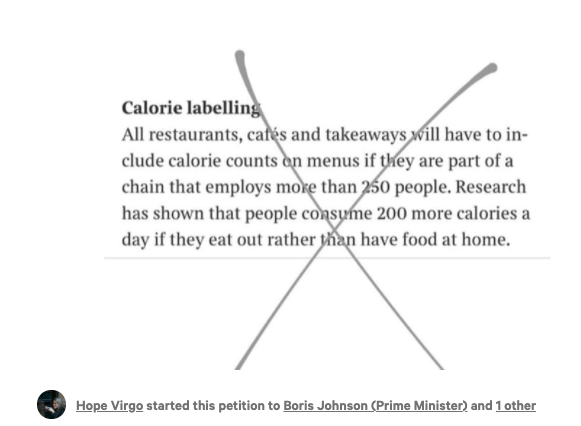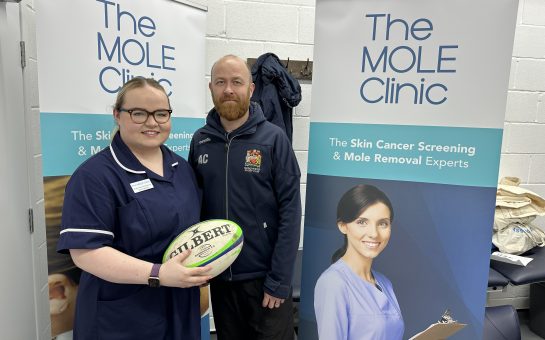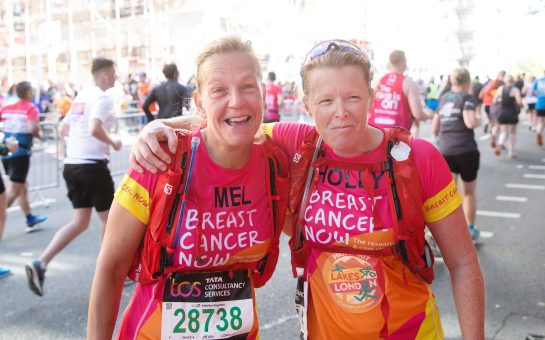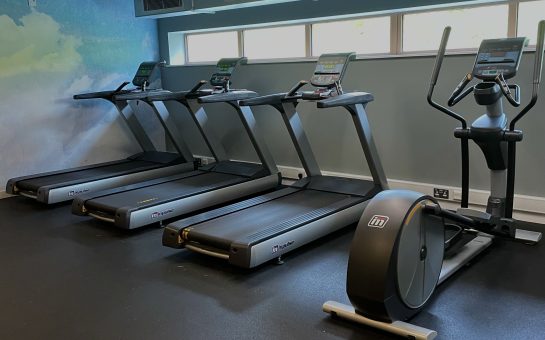The Channel 4 show ‘Lose a Stone in 21 Days’ with Michael Mosley has received significant backlash, with critics branding it damaging, and triggering for those with eating disorders – but what makes this show more harmful than its predecessors?
The aim of the show is to challenge five strangers to reverse the effects of lockdown by shedding their excess weight in just three weeks.
How? An 800-calorie diet.
The diet is meant to switch the participant’s bodies from burning primarily sugar to fat. The goal is to get to a stage of ketosis.
The NHS recommends a daily calorie intake of 2,000 for women and 2,500 for men, and to reduce this by 500-600 calories in order to lose weight.
Dr Mosley insists: “There couldn’t be a better time for doing this because we know obesity and type 2 diabetes both massively increase your risk of becoming seriously ill from Covid-19.”
He claims weight loss ridded him of Type 2 diabetes and stresses the 800-calorie diet is only for people whose BMI puts them in the overweight or obese categories.
The extreme methods of calorie restriction favoured by Michael Mosley, a doctor, TV presenter and author, have however caused alarm among viewers, with the eating disorder charity Beat adding to the widespread criticism.
In statement Beat said that the programme: “caused enough stress and anxiety to our beneficiaries that we extended our Helpline hours to support anyone affected and received 51% more contact during that time. It is very disappointing that once again, their needs have been ignored by broadcasters.”
Caroline Price, the Director of Services at Beat, added that the show: “did not appear to look after the participants’ mental health in any way” and had an “alarming focus on the participants’ weight, BMI and measurements,” as well as encouraging them to carry out activities engaged in by those with eating disorders such as: “destroying food to avoid eating it or fixating on eating a restricted number of calories”.
Dr Mosley claimed that Channel 4 spoke to the charity before the programme aired. Beat disputed this Tweeting: “We wrote to Channel 4 as soon as we heard the programme was airing, they did not consult us on it. This was the week before it went out. We did not see or approve the programme before it was aired last week.”
Dr Mosley has been urged to apologise and a petition has been set up that calls for him and Channel 4 to donate to Beat, in light of the surge of calls the charity’s helpline has received since the show aired.
Like and Retweet if you think @DrMichaelMosley and @Channel4 should have to donate some or the earnings for #loseastonein21days to @beatED as they’re having to stay open taking calls for the offence the show causes? #eatingdisorder #mentalillness
— Anxiety_Sugar (@Anxiety_Sugarr) August 12, 2020
What makes the show damaging is more than just the worryingly low-calorie intake it promotes, it’s the lack of discussion around mental health. The psychological factors that influence eating behaviour and weight are notably absent.
Curtis, the youngest volunteer participating in the show, says on the programme: “My Nan passed away from Covid, I was comfort eating”.
The confession led to commentators on Twitter calling for Curtis to see a therapist, not take part in a crash diet.
The man whose gran died of CoVid-19 said he was comfort eating. He is grieving & needs support to deal with his loss. #loseastonein21days
— Sally Baker TV Therapist (@sally_Therapist) August 5, 2020
In the second episode the volunteers hear messages of “support and concern from their family members” via video to keep them motivated, as it’s easy to “feel alone when dieting” says Dr Mosley.
Curtis watches a video of his parents and his father tells him: “I think you were on a rollercoaster to disaster; your grandmother’s death didn’t really help. Basically, what you were doing was comfort eating.”
He responds by saying putting on weight was “really sad”, and Dr Mosley asks if his grandmother’s death was a trigger.
Through tears, Curtis admits: “It escalated things,”
Dr Mosley listens and acknowledges the “horrible time” Curtis has gone through but an opportunity for a wider discussion is missed.
In the first episode the participants have their blood sugar levels, cholesterol, respiratory function, blood pressure, and BMI measured.
The combination of results is used to gauge their health.
The approach seems holistic in comparison to what has previously been seen on TV, where often only a number on a scale is used – though the use of BMI as a marker of overall health is seen as questionable by many.
Dr Mosley tells the volunteers: “This isn’t about how to look good in a swimsuit, it’s about improving health and the ability to fight off infection,” later adding: “The reason we’re doing this is not to do with vanity but it’s entirely to do with your health.”
The idea that the participants are losing weight, as a result of a more “nutritional diet”, in order to “bolster their immune system”, seems to be a more positive take on old dieting tropes that focus solely on looking good, but the show’s attribution of shame discounts it.
Tracy, who has lost both her parents to heart-related issues, admits: “I’ve put on a stone and a half and I kind of feel ashamed really.”
Her statement highlights the shame and morality attached to weight gain, it makes you “bad” and susceptible to moral judgement.
Sharika, another volunteer, meanwhile admits measuring her weight is “always scary.”
The supposedly simple act of weighing yourself has now seemingly become too scary, not presumably the practicalities of standing on the scales, but the emotional response and feelings of shame that comes with it. This fear seems to be what prevents people from keeping track of their weight.
The show capitalises on this stigma.
In one clip Tracy is having her waist measured by Mosley’s wife who forces her to guess her waist size. She puts her hands over her face and asks: “Do I have to?”.
Dr Mosley meanwhile provides commentary when measuring volunteer Katie’s waist. An “okay” is followed by an elongated and judgemental “okaaay”.
Later the participants wear matching tops and joggers when receiving their health results. They resemble inmates in prison. The effect is dehumanising. The intimate details of their health are told not just to them, but the entire group, giving an added blow of public shaming.
Mosley’s advice in response to their health results is damning: “Certainly, there are a few cases who urgently need to do something about their lives.”
Under the government’s current obesity strategy, the public too is being urged to lose weight. The strategy, much like the show, has received a backlash.
Beat’s latest strapline reads: ‘Public Health Not Public Shaming’. Their website encourages people to call on the Government (it includes a link to a form to email the Prime Minister’s Office) to include eating disorder experts in their obesity strategy and ‘ensure their campaigns are non-stigmatising and don’t pose a risk to people with eating disorders.”
It’s estimated 1.25 million people in Britain suffer from an eating disorder.
Hope Virgo, an author and campaigner for mental health who suffered from anorexia, was vocal in her criticism of the Channel 4 programme, calling it’s messaging “concerning”.
Just a quick reminder @DrMichaelMosley a lot of people won’t actually reach out for support. But instead watch your prog And take it on board … eating disorders are extremely secretive illness and in my opinion your show is causing extremely dangerous messaging for millions https://t.co/QgXFkrU3RJ
— Hope Virgo (@HopeVirgo) August 13, 2020
In an article for The Independent Virgo wrote: “ The current conversation about calories and weight are landing within a context of diet culture and fat-shaming – where unrealistic body image is the norm. Combined, this creates a toxic problem that could do far more harm than good.
“Are we really okay with creating a world where it feels impossible for so many to recover from eating disorders? And where children are going to walk into a restaurant and be faced with calories on menus?”
Virgo started the #Dumpthescales campaign to: ‘make sure that every single person with an eating disorder can access support and treatment regardless of what their weight is,” and has now began the campaign: ‘#CurbtheCount AND Stop Calories being displayed on menus!’ in response to the government’s obesity strategy. At the time of writing, over 20,000 people have signed the petition.
#CurbTheCount – please add your name! https://t.co/NNTIDTWBrO pic.twitter.com/hErmWfxD5k
— Hope Virgo (@HopeVirgo) August 6, 2020
 Virgo urges for a focus on ‘education and empowerment’ rather than weight and calorie counting and refers to evidence that 93% of diets fail.
Virgo urges for a focus on ‘education and empowerment’ rather than weight and calorie counting and refers to evidence that 93% of diets fail.
Alex Light, a writer and body confidence influencer, also addressed the programme on social media.
Light rebuked the programme on Instagram, saying: “Weight loss should NEVER be that rapid”, adding “it’s a crash diet” and therefore damaging.
Contradicting Dr Mosley, Light says crash diets: “Reduce your metabolic rate, weaken your immune system, trigger heart problems, cause dehydration, disrupt your bodily functions, and leave you feeling unwell and unable to function.”
Aside from this they: “fuel and perpetuate the binge cycle”. Once the crash diet is over, she writes, the “animalistic urge” to eat kicks in causing the vast majority of diets to ultimately end in weight gain.
Channel 4 has said in a statement: “The series examines the evidenced link between Covid-19 and the very real threat it poses to those who have a BMI in the obese or overweight categories.”
“All episodes clearly state that a short-term 800-1000 calorie diet is only suitable for people whose BMI puts them in the overweight or obese categories and that it should be done with proper medical supervision.”



